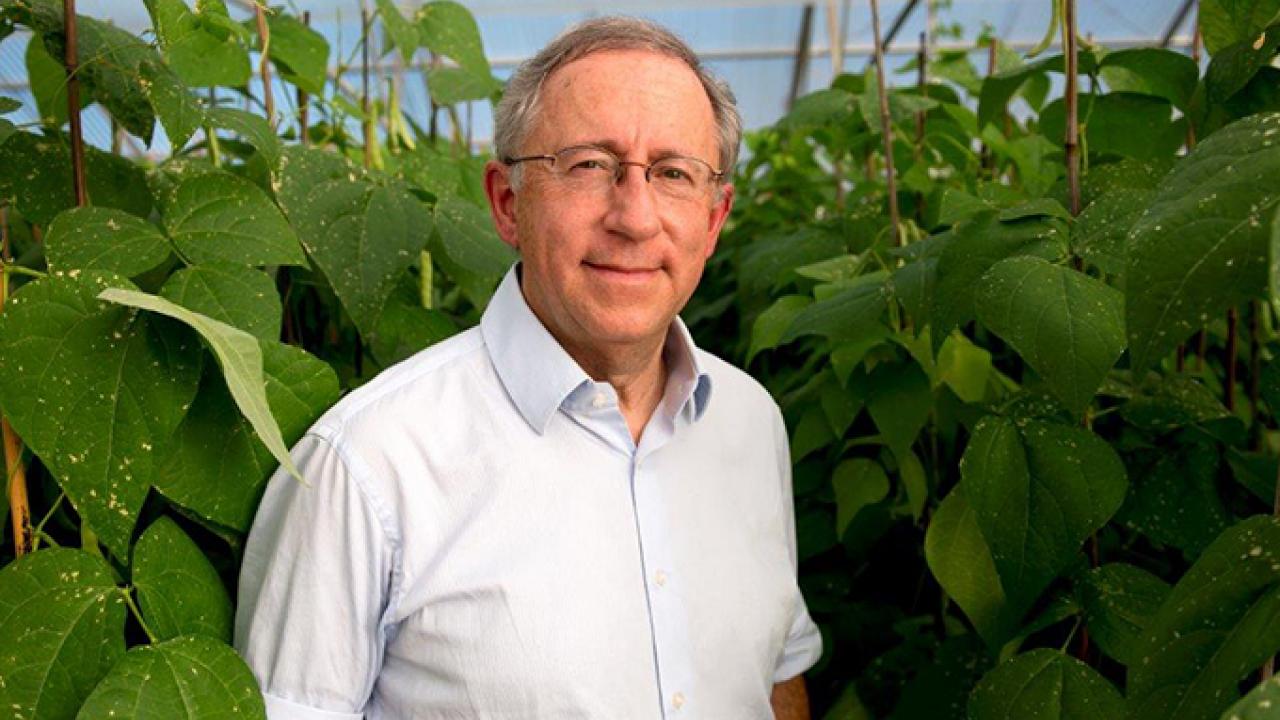
Distinguished Scientist
Plant science professor Paul Gepts, who leads the UC Davis bean breeding program, has been selected as “distinguished scientist” for the 2017 Agropolis Louis Malassis International Scientific Prize for Agriculture and Food.
The prize is given once every two years to recognize individuals for exemplary and promising contributions promoting innovative research, development and/or capacity building to improve food and agricultural systems sustainability, as well as to address food security and poverty reduction. The prize was created as a tribute to Louis Malassis, an ardent supporter of farmers and founder of the Agropolis scientific cluster in Montpellier, France.“I have been guided by many mentors who are outstanding scholars throughout my career,” Gepts said. “I come from an urbanized family in Belgium with limited contact in agriculture, but agronomy had the right combination of basic biological sciences and applications to everyday problems, such as food security and biological conservation, that appealed to me. This prize is a recognition that I chose the right path.”
Beans are a vitally important global food source. Gepts’s research group studies the origins and evolution of beans through a combination of field explorations in Latin America and genomic approaches. Their findings have been applied to bean breeding programs around the world, including in California.
His group’s research has identified the common bean’s two points of domestication—one in the Mesoamerican area of Central America and the other in the Southern Andes. The researchers recently determined how and when wild beans were dispersed from Mesoamerica throughout the Andes.
He collaborates with bean breeders in the African Bean Consortium funded by the Kirkhouse Trust to apply his crop evolution and bean genomics research to the development of improved bean cultivars for African farmers.
Gepts believes that if biodiversity, an essential component of sustainability, is to be conserved and utilized there is a need to understand the factors that have shaped it. For crops, this means understanding the evolution of wild progenitors, the process of domestication, and changes after domestication, including plant breeding.
Gepts and other prizewinners will present the keynote lecture at Agropolis’ annual meeting in Montpellier and join a roundtable discussion in Milan, Italy, during the 8th International Forum on Food and Nutrition in December. To learn more about Agropolis Foundation prize recipients, visit the organization’s website.